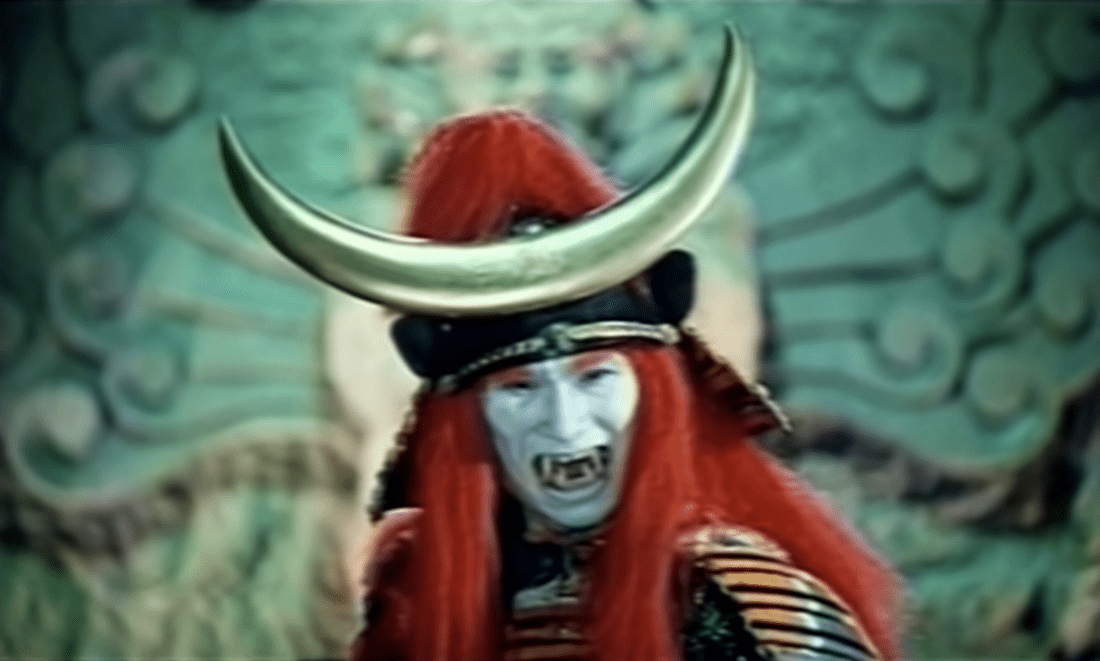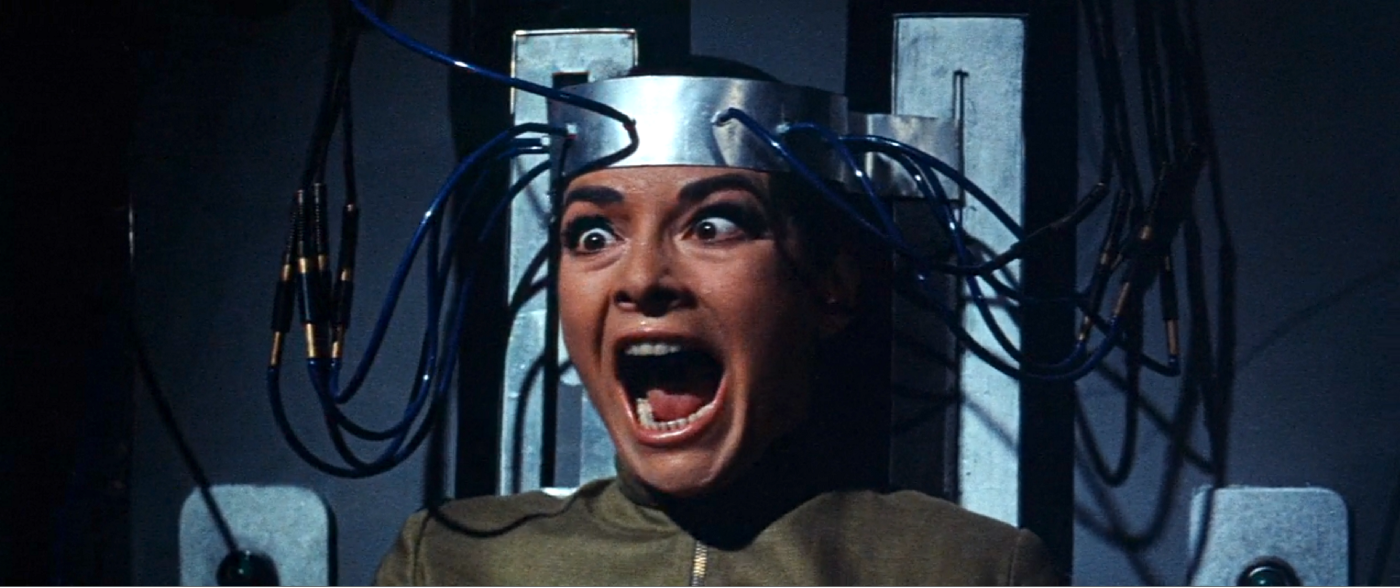
Mababangong Bangungot (Perfumed Nightmare) is so dense with imagery it’s hard to know where to begin or how to do it justice. It's poetic and personal, political and mythological, comic, radical, innovative, and intuitive. It was written, directed, filmed, produced, edited, and starred in by Kidlat Tahimik. I don’t think it could have been made any other way. It is so idiosyncratic, fluid, and quirky that it needed a singularity of vision to hold it together. It’s a very impressive filmic essay that uses association, juxtaposition, and personal revelation to stir up a mass of creative ideas into a compelling statement about colonialism and Tahimik’s home country, The Philippines.
Tahimik was a pioneer in what came to be called the "Third Cinema,” a movement dedicated to resisting and exposing neocolonialism. Tahimik made Mababangong Bangungot in 1977. He had very little money and nothing but a cheap 16mm camera with no sound but he made all the limitations work for him. The end product is truly masterful. It is intentionally unconventional and uses its rough appearance and limited materials to subvert the typical expectations for a feature film. It is a deliberate assault on Hollywood’s aesthetic and expectations.
Mababangong Bangungot is partly a documentary, partly a mockumentary, and partly a fictional narrative about a rural Philippine taxi driver who travels to the west. There are similarities to The Gods Must Be Crazy in that the hero is a rural man with limited exposure to modern society who is thrust into modern city life. Through his uninitiated eyes we see western civilization anew but where The Gods Must Be Crazy is a coherent comedy with a subversive subtext, Perfumed Nightmare is more chaotic as well as more pointed in its criticism. While Perfumed Nightmare is a more weighty and serious film both movies share a humorous warmth toward the characters.
Tahimik allows the camera to be both foreigner and native. It admires the beauty and richness of the rural Philippine villages the way a tourist might but it also understands and participates in what it sees. It bridges the gap between outside observer and local participant.

The key to understanding colonialism, “neo” or otherwise, is this separation between indigenous and foreigner. Movies like Perfumed Nightmare rely on a special point of view only accessible to those being invaded. Tahimik is forced to try and make sense of what is happening to his country, his culture, and his identity as it is all overwhelmed by the West. He was once part of an integrated, interlocking, whole. He was a Filipino in the Philippines, but his status is changing. He is caught up in a process that started before he was born and is still ongoing. Now, instead of being a farmer or a villager, he is a member of the unwanted underclass, a rural hick who doesn’t belong anywhere.
The people native to the Philippines stand on unstable ground, identified as both native and foreign. Native to the island but products of a culture that is being replaced. Christianity and McDonalds are the new Philippines, coconuts, and water buffalo are the old.
Tahimik’s film is messy, very messy. He watches cultures collide and then picks through the wreckage to see what he can find. One way to find out how a car works is to smash it to pieces. In fact, that is exactly how Tahimik and his brethren made the taxis they drive. They cannibalized all the American Jeeps left on the island after the war. Tahimik explains, “these are vehicles of war which we made into vehicles of life.”
Tahimik loves American cars, and NASA, and beauty pageants. He believes in Jesus and Mary but as seen through a filter of Philippine spirituality. At one point in the film, he takes two pictures and places them side by side in a diptych frame. On the left is the Virgin Mary and on the right is a tall blonde beauty queen from a pageant. A Western priest would surely disapprove. He would tell Tahimik that such a pairing is sacrilegious. The priest would be correct from his point of view but for Tahimik this pairing makes sense. They are both women he admires and values. The real question is whether Tahimik’s pairing represents a misunderstanding or an insight. For the priest, Tahimik has failed to understand the chaste holiness of Mary and the profane nature of the beauty queen. However, Tahimik sees both women as Western seductresses who have come to invade his country and dazzle the natives with glitz and glamor.

It is very difficult to describe the nature of how the film unfolds, even the satire changes in tenor over time. Sometimes it’s over the top like when he features clueless, arrogant Americans, but other times it’s so subtle it is hard to distinguish from a straight documentary.
Tahimik ends up leaving his little village and traveling to Paris where he works temporarily filling gumball machines. In France he learns the all important motto, “Liberté, égalité, fraternité, supermarché!” Tahimik wants to experience the optimism and grandeur of the West. The culture that put a man on the moon, but instead he is confronted by capitalism and its mindless avarice.
The narrative of Tahimik’s travels is shuffled in among other narratives. We see the story of his revolutionary father and his resistance against the Spanish invasion. We see Tahimik’s pilgrimage to meet Wernher von Braun, the inventor of the rocket that went to the moon. There is also a reoccurring theme about bridges, bridges to the moon, bridges to the outside world, Tahimik even refers to his father's rifle as a bridge “away from the Spanish.” The movie begins on the small concrete bridge that is the only way to access his hometown.

A bridge seems like a positive concept, an optimistic symbol of unity but of course, it is also a means of access and penetration. Tahimik explains that the US Army tried to widen the bridge to his village but failed. Tahimik’s film is itself a bridge. A means by which anyone can access Tahimik’s vision. Everything in Perfumed Nightmare is double-sided, including the title. Tahimik’s relationship to the long line of invaders who have influenced his country is complex. He clearly wishes to protest the invasions that have assaulted his nation and culture, but he is also curious about what these forced marriages have produced.

There’s no way, to sum up this film by way of conclusion. When it ended I felt the need to watch it again. There is more than you can absorb in one viewing. It is clear that this film was very close to Tahimik’s heart. It is infused with his own experiences and personal feelings. It managed to somehow amount to a sincere satire of what he loves and hates.
If you enjoyed this article you might also enjoy this - https://filmofileshideout.com/archives/schlingensiefs-slit-is-rough-going/



